Mirrormask
- 2005
- Tous publics
- 1h 41m
IMDb RATING
6.7/10
24K
YOUR RATING
In a fantasy world of opposing kingdoms, a fifteen-year-old girl must find the fabled MirrorMask in order to save the kingdom and get home.In a fantasy world of opposing kingdoms, a fifteen-year-old girl must find the fabled MirrorMask in order to save the kingdom and get home.In a fantasy world of opposing kingdoms, a fifteen-year-old girl must find the fabled MirrorMask in order to save the kingdom and get home.
- Awards
- 5 wins & 2 nominations total
Nik Robson
- Pingo
- (as Nik Robinson)
- …
Featured reviews
8A.P.
I have just returned from seeing this wonderful little film. From the summary, it is obvious to most that not only is this, for the most part, a children's film, but it borrows from the classic "girl trapped in another world as a metaphor for growing up". We're even treated to a brief shot of a man juggling glass balls a la David Bowie in "Labirynth". The obvious "Alice in Wonderland-esquire" story makes things a bit predictable since we've seen it several times, but if one were to sit back and enjoy the magic and the characters, then enjoyment is practically guaranteed. It is a very family-friendly movie because of this.
At the same time, the art crowd will instantly recognize the names of Neil Gaiman and Dave McKean. Gaiman is the author of such novels as "American Gods" and "Neverwhere" and also is a comic writer that reached fame with his metaphysical masterpiece series "The Sandman". McKean, likewise, is a famed graphic designer and also worked with Gaiman on "Sandman". They have both collaborated on children's books as well. McKean's brilliant design work and Gaiman's delightful characters are evident throughout. Those seeking more cerebral movies will not be displeased.
The only negatives of this movie is that it slows a bit in some places and the effects are sometimes "too pretty" and might be a distraction. These are only two small drawbacks in what is otherwise a great film. I know I will not be the only one hopeful that this will be the first in many movies that will be involved in the Jim Henson Company's comeback.
At the same time, the art crowd will instantly recognize the names of Neil Gaiman and Dave McKean. Gaiman is the author of such novels as "American Gods" and "Neverwhere" and also is a comic writer that reached fame with his metaphysical masterpiece series "The Sandman". McKean, likewise, is a famed graphic designer and also worked with Gaiman on "Sandman". They have both collaborated on children's books as well. McKean's brilliant design work and Gaiman's delightful characters are evident throughout. Those seeking more cerebral movies will not be displeased.
The only negatives of this movie is that it slows a bit in some places and the effects are sometimes "too pretty" and might be a distraction. These are only two small drawbacks in what is otherwise a great film. I know I will not be the only one hopeful that this will be the first in many movies that will be involved in the Jim Henson Company's comeback.
The medium of film is--like the medium of writing or other celebrated media--practically limitless in potential for fantastic creations. However, the fantasy (NOT SCI FI) genre is severely underrepresented in it. For every Lord of the Rings, we have ten attempts at The Matrix.
But what better alchemical mix to straight-up fantasy can we have than Neil Gaiman, Dave McKean, and the Henson Company? One thing Henson could do with his puppets that many others never really aspired to do was create fantasy the likes that weren't really done again, and his legacy lives on, using the enriching and creative mind of Gaiman, the celebrated British fantasy writer and comic book artist whose vivid imagination was so perfectly translated into film using practically every chemical for fantasy possible: CGI, animation, painting, set design, split-screen, superimposition, saturated colors, I even think there were moments of stop-motion animation.
The story is about a fifteen-year-old girl named Helena who works for a circus. Her creative and artistic mind keeps her busy from day to day until her mother falls ill and has to go to the hospital. Blaming it on herself for a row she had with her mother, Helena "escapes" into dreamland... or does she? I think what's really refreshing about this film is that, despite what a lot of people say about it, it's NOT that much like Alice and Wonderland. I can't help but think that, despite the fact that this film uses a lot of tropes common to the fantasy genre, it's distinct and original, something to be admired and appreciated. I don't think anything in this film really came off as that clichéd, even though it did come across as familiar. It might even be possible to say that anybody who has a real problem with it is just taking it too seriously, but that argument always goes in the wrong direction so forget about it.
One of the things I think that's important about a film like this is that it's not really a kids movie. Children could watch it, easily, and be fine with it, but it's not directed just to them. It isn't really directed at a target audience in the genre sense. It is simply fantasy for fantasy's sake, going where a lot of filmmakers seem desperate to avoid because "It's just not real enough." That's why, despite the fact that this movie has pretty obvious CGI, it doesn't matter as much as the obvious CGI in The Hulk: it's so fantastic, it helps that it doesn't seem real.
Too bad it just won't get the marketing or the attention it deserves, probably ever. That's why if it's ever considered a classic at all, it'll be a cult classic. Such seems the destination of many things that dare to be what they want and not what others want them to be.
--PolarisDiB
But what better alchemical mix to straight-up fantasy can we have than Neil Gaiman, Dave McKean, and the Henson Company? One thing Henson could do with his puppets that many others never really aspired to do was create fantasy the likes that weren't really done again, and his legacy lives on, using the enriching and creative mind of Gaiman, the celebrated British fantasy writer and comic book artist whose vivid imagination was so perfectly translated into film using practically every chemical for fantasy possible: CGI, animation, painting, set design, split-screen, superimposition, saturated colors, I even think there were moments of stop-motion animation.
The story is about a fifteen-year-old girl named Helena who works for a circus. Her creative and artistic mind keeps her busy from day to day until her mother falls ill and has to go to the hospital. Blaming it on herself for a row she had with her mother, Helena "escapes" into dreamland... or does she? I think what's really refreshing about this film is that, despite what a lot of people say about it, it's NOT that much like Alice and Wonderland. I can't help but think that, despite the fact that this film uses a lot of tropes common to the fantasy genre, it's distinct and original, something to be admired and appreciated. I don't think anything in this film really came off as that clichéd, even though it did come across as familiar. It might even be possible to say that anybody who has a real problem with it is just taking it too seriously, but that argument always goes in the wrong direction so forget about it.
One of the things I think that's important about a film like this is that it's not really a kids movie. Children could watch it, easily, and be fine with it, but it's not directed just to them. It isn't really directed at a target audience in the genre sense. It is simply fantasy for fantasy's sake, going where a lot of filmmakers seem desperate to avoid because "It's just not real enough." That's why, despite the fact that this movie has pretty obvious CGI, it doesn't matter as much as the obvious CGI in The Hulk: it's so fantastic, it helps that it doesn't seem real.
Too bad it just won't get the marketing or the attention it deserves, probably ever. That's why if it's ever considered a classic at all, it'll be a cult classic. Such seems the destination of many things that dare to be what they want and not what others want them to be.
--PolarisDiB
This is my first review, so pardon me for any clumsiness in its composition. As such I am nervously avoiding any discussion of the plot, lest I spoil anything.
This is a continuation of the tradition of fantastical films about the adolescent transition of young women. Other films in this vein are "Alice in Wonderland", "Paperhouse",and "Labrynth." The film was produced by Henson Studios, and is presented like their other features, but rather than puppets and elaborate sets, animation replaces those elements.
Visually I found it stunning. I am familiar with McKean's work, and I found this to be amongst his best. It was distinctly McKean's style. The use of color was phenomenal, as well as surreal composition. I was enthralled seeing his creations in literal motion, rather than the usual implied motion. I personally thought there were a number of visual references to other great films, but I'll leave that to your opinion. I thought the direction clearly demonstrated his grasp of composition.
The writing was true to Gaiman's tradition of off-beat fairy tales. The pacing was dreamlike, flowing between slow moments of beauty and exposition to frenetic moments of fierce action. Humor, dark and otherwise, punctuated the film. The dialogue was very strong.
I was also very fond of the use of sound. One scene is a frightening and beautiful music video, that can be lifted out of the film completely and carry itself. It fits better in the film, but doesn't need to.
The film fits extremely well with all of the previous Henson Productions. I suggest having seen "Dark Crystal", "Labrynth", and "Jim Henson's The Storyteller" before viewing this. The piece fits very well with these.
This is a continuation of the tradition of fantastical films about the adolescent transition of young women. Other films in this vein are "Alice in Wonderland", "Paperhouse",and "Labrynth." The film was produced by Henson Studios, and is presented like their other features, but rather than puppets and elaborate sets, animation replaces those elements.
Visually I found it stunning. I am familiar with McKean's work, and I found this to be amongst his best. It was distinctly McKean's style. The use of color was phenomenal, as well as surreal composition. I was enthralled seeing his creations in literal motion, rather than the usual implied motion. I personally thought there were a number of visual references to other great films, but I'll leave that to your opinion. I thought the direction clearly demonstrated his grasp of composition.
The writing was true to Gaiman's tradition of off-beat fairy tales. The pacing was dreamlike, flowing between slow moments of beauty and exposition to frenetic moments of fierce action. Humor, dark and otherwise, punctuated the film. The dialogue was very strong.
I was also very fond of the use of sound. One scene is a frightening and beautiful music video, that can be lifted out of the film completely and carry itself. It fits better in the film, but doesn't need to.
The film fits extremely well with all of the previous Henson Productions. I suggest having seen "Dark Crystal", "Labrynth", and "Jim Henson's The Storyteller" before viewing this. The piece fits very well with these.
Title: Mirrormask (2005)
Director: Dave McKean
Cast: Stephanie Leonidas, Gina McKee, Rob Brydon, Jason Barry, Dora Bryan
Review: Dave McKean and Neil Gaiman have partnered up in the past to write some visually astounding children's books. McKean would take care of the artwork and Gaiman would take care of the story. This time around they have joined forces to create a film that very closely resembles their previous colaborations. Only this time around, the images move and actors say the words in this way helping to bring McKeans art and Gaimans words to vibrant life.
The story in Mirrormask is about a young girl called Helena. Her parents run a circus and she has been brought up in the circus environment, but lately shes been feeling like shes not really cut up for circus life. Helena and her mother have a fight about her not wanting to be in the circus anymore and she wishes her mother would die. On that same day, her mother falls ill and ends up in the hospital and Helenas conscience begins to bother her, after all, she did wish her mother was dead. And now she is close to dying. So once Helena falls as sleep thinking about all these things she enters her imaginary dreamworld where everything has a representation of what she knows from real life.
This is a very visual film. McKean fills the screen with his lush imagery. If you've seen McKeans artwork and know how beautiful it is, then you know how incredible it is to see his pictures come to life on this film. This movie is eye candy, and for those of you out there who love art and love films that give their utter most importance to their visual aspect, then you will love this movie. McKean fills the screen with really outlandish, strange, weird and dreamlike situations. Nothing is what you would expect.
Some people might feel that this type of movie is all style and art and no substance simply because its such a visual film. But I sincerely think that this is not the case with Mirrormask. With a writer like Neil Gaiman in charge, well, you can almost tell that the movie is going to have some deep psychological themes going on for it. And it does. Every character, every situation, every word spoken in Helenas dream world means something in Helenas real life. So be on the look out for those comparisons.
The movie has some truly astounding sequences that left me breathless and my jaw was dropping. First there was the giants orbiting sequence with these huge stone giants floating in the air and then there's this sequence in which Helena gets transformed into a dark princess that is simply amazing. They really did a good job of mixing music with visuals in that sequence. You'll just have to wait and see it to understand how beautiful it is.
This movie wears its influences on its sleaves and has no problems in showing that. There's many similarities between this movie and Labyrinth, Legend and most of all The Never Ending Story. Its the only thing I didn't love about this movie. It felt like they remade The Never Ending Story with elements from Labyrinth and Legend. Take all those movies, shake em together, add a little bit of psychological depth and incredible visuals and you've got Mirrormask. So if there's anything bad to say, its that in its narrative, its similar to a few other films. But on a visual level, its a whole other thing, so that sort of balances its self out.
I liked the fact that Helena wasn't a dumb little girl. She was very head strong and very smart. She wasn't a dumb little girl stumbling across a strange landscape. She was quick and witty and she realizes the situation in which she is in quickly and I liked that about her character which was very well played by Stephanie Leonides.
So in conclusion, this film will blow you away with both its visuals and its story. Its a mixed bag of other films you've seen before story wise, but on a visual level the film will be like nothing you've ever seen before.
Rating: 5 out of 5
Director: Dave McKean
Cast: Stephanie Leonidas, Gina McKee, Rob Brydon, Jason Barry, Dora Bryan
Review: Dave McKean and Neil Gaiman have partnered up in the past to write some visually astounding children's books. McKean would take care of the artwork and Gaiman would take care of the story. This time around they have joined forces to create a film that very closely resembles their previous colaborations. Only this time around, the images move and actors say the words in this way helping to bring McKeans art and Gaimans words to vibrant life.
The story in Mirrormask is about a young girl called Helena. Her parents run a circus and she has been brought up in the circus environment, but lately shes been feeling like shes not really cut up for circus life. Helena and her mother have a fight about her not wanting to be in the circus anymore and she wishes her mother would die. On that same day, her mother falls ill and ends up in the hospital and Helenas conscience begins to bother her, after all, she did wish her mother was dead. And now she is close to dying. So once Helena falls as sleep thinking about all these things she enters her imaginary dreamworld where everything has a representation of what she knows from real life.
This is a very visual film. McKean fills the screen with his lush imagery. If you've seen McKeans artwork and know how beautiful it is, then you know how incredible it is to see his pictures come to life on this film. This movie is eye candy, and for those of you out there who love art and love films that give their utter most importance to their visual aspect, then you will love this movie. McKean fills the screen with really outlandish, strange, weird and dreamlike situations. Nothing is what you would expect.
Some people might feel that this type of movie is all style and art and no substance simply because its such a visual film. But I sincerely think that this is not the case with Mirrormask. With a writer like Neil Gaiman in charge, well, you can almost tell that the movie is going to have some deep psychological themes going on for it. And it does. Every character, every situation, every word spoken in Helenas dream world means something in Helenas real life. So be on the look out for those comparisons.
The movie has some truly astounding sequences that left me breathless and my jaw was dropping. First there was the giants orbiting sequence with these huge stone giants floating in the air and then there's this sequence in which Helena gets transformed into a dark princess that is simply amazing. They really did a good job of mixing music with visuals in that sequence. You'll just have to wait and see it to understand how beautiful it is.
This movie wears its influences on its sleaves and has no problems in showing that. There's many similarities between this movie and Labyrinth, Legend and most of all The Never Ending Story. Its the only thing I didn't love about this movie. It felt like they remade The Never Ending Story with elements from Labyrinth and Legend. Take all those movies, shake em together, add a little bit of psychological depth and incredible visuals and you've got Mirrormask. So if there's anything bad to say, its that in its narrative, its similar to a few other films. But on a visual level, its a whole other thing, so that sort of balances its self out.
I liked the fact that Helena wasn't a dumb little girl. She was very head strong and very smart. She wasn't a dumb little girl stumbling across a strange landscape. She was quick and witty and she realizes the situation in which she is in quickly and I liked that about her character which was very well played by Stephanie Leonides.
So in conclusion, this film will blow you away with both its visuals and its story. Its a mixed bag of other films you've seen before story wise, but on a visual level the film will be like nothing you've ever seen before.
Rating: 5 out of 5
This is a visually mesmerizing film that takes movie fantasy into new territory. Think Alice in Wonderland meets Wizard of Oz performed by Cirque de Soleil. MirrorMask takes a comic-book approach to Good vs. Evil, with 15-year-old Helena as the protagonist who must find the MirrorMask and save the Light Kingdom.
But the story isn't nearly as important as the fantastic creatures and hallucinatory imagery that parade non-stop through Helena's fantastic journey. Director and writer (and frequent collaborators) Dave McKean and Neil Gaiman leap into the movie business with extraordinary confidence and derring-do. They are both legendary successes and have a devoted fan base from comic books (the Sandman series, for one), novels, short stories, posters, CD art, and much more.
It quickly becomes clear that MirrorMask is the creation of talented and imaginative artists completely unfettered by the bounds of traditional film-making. As a result, it is a bold departure from anything you have ever seen on the screen before. The story is simple enough and the visuals so wondrous that most children should find the movie enjoyable (unless they've become action-oriented adrenaline addicts). Yet the writing is sufficiently deep to satisfy the most thoughtful of adults.
I spoke to both McKean and Gaiman at one of the Sundance screenings and found them both polite, thoughtful and interesting. I told them that MirrorMask was the kind of movie I wanted to see again immediately. It is lovely enough to warrant a second look. And there's enough meat on the bones to go back and catch what you might have missed. The last movie I felt that way about was Memento, one of my all-time favorites.
But the story isn't nearly as important as the fantastic creatures and hallucinatory imagery that parade non-stop through Helena's fantastic journey. Director and writer (and frequent collaborators) Dave McKean and Neil Gaiman leap into the movie business with extraordinary confidence and derring-do. They are both legendary successes and have a devoted fan base from comic books (the Sandman series, for one), novels, short stories, posters, CD art, and much more.
It quickly becomes clear that MirrorMask is the creation of talented and imaginative artists completely unfettered by the bounds of traditional film-making. As a result, it is a bold departure from anything you have ever seen on the screen before. The story is simple enough and the visuals so wondrous that most children should find the movie enjoyable (unless they've become action-oriented adrenaline addicts). Yet the writing is sufficiently deep to satisfy the most thoughtful of adults.
I spoke to both McKean and Gaiman at one of the Sundance screenings and found them both polite, thoughtful and interesting. I told them that MirrorMask was the kind of movie I wanted to see again immediately. It is lovely enough to warrant a second look. And there's enough meat on the bones to go back and catch what you might have missed. The last movie I felt that way about was Memento, one of my all-time favorites.
Did you know
- TriviaAccording to an interview with Neil Gaiman, the original computers used to do all of the CG were named after The Beatles (John, Paul, Ringo, George). Later a fifth computer was required, so it was named Yoko. Soon after the fifth computer was introduced, the network crashed and could not be restored properly ("the computers refused to talk to each other"). A new server and computers were purchased and named after The Ramones (Joey, Jonny, DeeDee and Tommy). Gaiman said "I wish I knew more about the history of The Ramones; the computers performed brilliantly, vibrantly and died an untimely - and early - death"
- GoofsActor Peter Burroughs (Red Troll) is misspelled in the end credits. His official biographies confirm it is the same person.
- How long is Mirrormask?Powered by Alexa
Details
- Release date
- Countries of origin
- Official site
- Language
- Also known as
- Дзеркальна маска
- Filming locations
- Production companies
- See more company credits at IMDbPro
Box office
- Budget
- $4,000,000 (estimated)
- Gross US & Canada
- $866,999
- Opening weekend US & Canada
- $126,449
- Oct 2, 2005
- Gross worldwide
- $866,999
- Runtime1 hour 41 minutes
- Color
- Sound mix
- Aspect ratio
- 1.85 : 1
Contribute to this page
Suggest an edit or add missing content





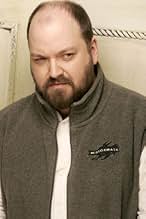
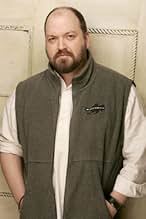
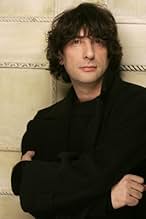
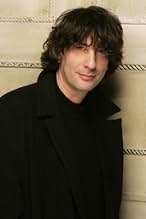
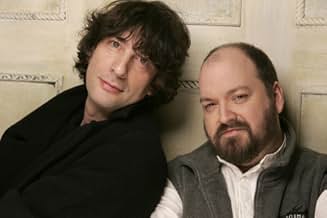
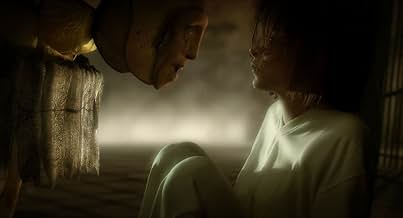
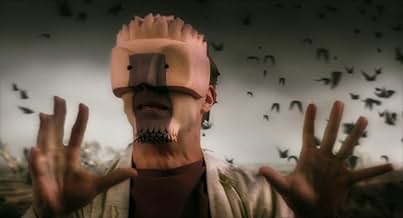
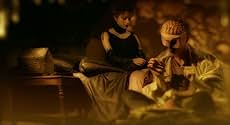










![N[eon]](https://m.media-amazon.com/images/M/MV5BNWE2NjliNzAtMTE2MS00YzY2LTljYmYtZmMxODEyM2NjM2I4XkEyXkFqcGc@._V1_QL75_UX140_CR0)









